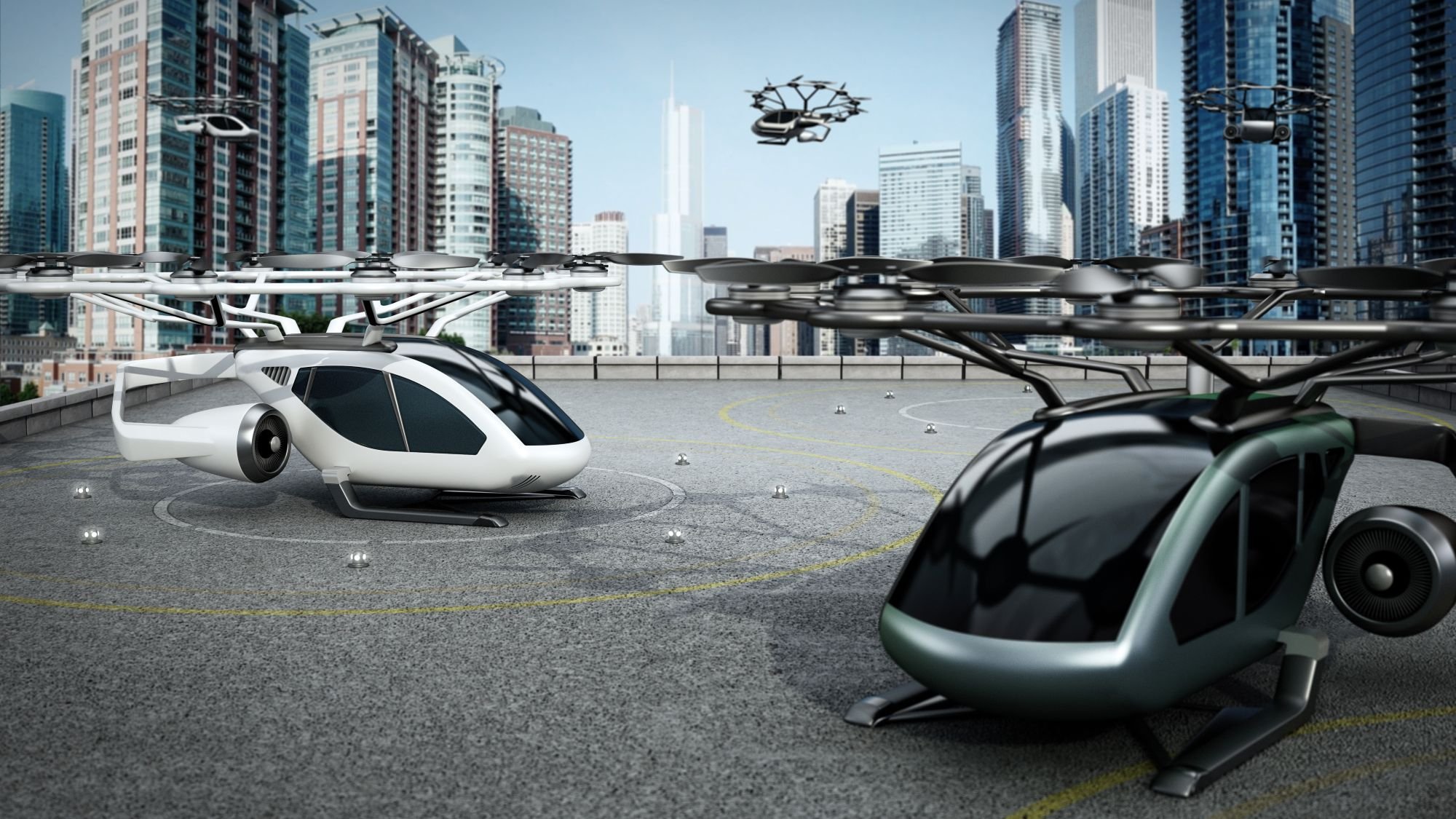The idea of hailing a flying car has always belonged to science fiction. But thanks to Joby Aviation (JOBY +2.09%), the idea of catching a flying taxi is slowly edging into reality.
The company's electric vertical takeoff and landing (eVTOL) aircraft are designed to carry passengers over congested cities at speeds upwards of 200 mph. And they are quieter than a helicopter and have zero emissions. This vision isn't theoretical. Joby has already demonstrated eVTOLs in New York and Dubai and is moving through the Federal Aviation Administration's (FAA's) certification process as I write.
With major strategic partners, a strong cash position, and an aggressive market expansion plan, Joby could be one of the first to make commercial flying taxis a real business. The question for investors is whether this growth stock is ready for takeoff today, or might it be wiser to wait until the company has a little more grounding?

Image source: Joby Aviation.
From blueprints to boarding passes
Joby is trying to solve a problem that most city drivers face everyday: traffic. And not just any traffic. Horribly congested traffic, the kind that makes you wish you were anywhere (even at the DMV, with slow internet) but stuck in it.

NYSE: JOBY
Key Data Points
To get there, however, Joby needs a few things to work in its favor. The first is full FAA-type certification, the regulatory green light that will let it fly passengers in its eVTOLS. The second is the infrastructure to make its vision practical, that is, a network of vertiports, charging stations, and terminals in the right locations so customers can board, fly, and land without the experience feeling like more hassle than just staying in the car.
So far, the company has checked off some big early boxes. It already holds FAA Part 135 certification, which means it's cleared to operate as an air carrier with approved aircraft. It's also moving to lock down prime real estate for takeoff and landing, from Manhattan heliports to Dubai's planned aerial taxi hubs.
But that doesn't mean the company is smooth flying -- yet. Its biggest "unknown" is time. Every month that slips by without full FAA certification pushes profitability that much further into the future. Add in the fact that it's burning cash each quarter, and you start to see why patience -- and a deep cash cushion -- are non-negotiable.
Big names, big bets
Speaking of cash, where is Joby getting money for research and development?
Well, here's where the story gets interesting.
Although Joby is pre-revenue, it has an impressive ecosystem of backers and partners. Back in 2022, Delta Air Lines (DAL 1.21%) invested about $60 million in Joby, with the expectation that Joby would eventually create a premium service for Delta customers. More recently, Toyota (TM 0.76%) committed $894 million to helping Joby with certification and commercial production of its electric air taxis. In perhaps its boldest move, Joby plans to acquire Blade Air Mobility (BLDE +3.15%), which would help it gain access to central terminals in New York, Southern California, and Europe.
Meanwhile, international expansion is already underway. In Dubai, Joby signed an exclusive six-year agreement with the Roads and Transport Authority (RTA) to launch aerial tax services there in 2026. Finally, Joby recently announced that it's partnering with L3Harris to develop hybrid eVTOLs for defense applications, with demonstrations planned in 2026.
Things seem to be rolling. But before we get too bullish, let's look at its finances.
The numbers under the hood
Here's where reality checks in.
Over the last 12 months, Joby generated just $110,000 in revenue, essentially none, while recording a net loss of about $596 million. Just in the first quarter of 2025, it posted a loss of $82 million, or $0.11 per share, driven largely by spending in research and development. To add fuel to the fire, cash burn was $111 million for the quarter.
The balance sheet, however, is a strength, largely because of partners. Joby holds about $813 million in cash and short-term investments. That net cash position gives the company some runway to fund operations without immediate dilution.
Still, with a market cap near $17 billion, the stock is priced well ahead of fundamentals. It's price-per-book (P/B) ratio -- which measures how richly the market values the company relative to the net assets on its balance sheet -- sits around 20. That's steep compared with the S&P 500's median of about 3. Even Archer Aviation (ACHR +5.37%), Joby's primary competitor, is trading at roughly 5.6 times book value. That doesn't mean Joby can't grow into its valuation, but it does underscore how much future success is baked into today's price.
Verdict: Should you hitch a ride?
When people talk about Joby's risks, they usually circle the big ones: FAA certification, steady cash burn, competition. But there's a second layer of risks -- call them structural -- that could make investing in Joby choppy in the short term.
Start with the skies themselves. Urban airspace is already a juggling act, and air traffic control in cities like New York and LA runs hot most days. If regulators decide to keep eVTOL traffic on a tight leash, Joby's flight schedule could end up thinner than its business plan assumes.
On the ground, vertiports have to be built, and convincing neighborhoods to welcome them is another story entirely. Costs could also be a problem: insurance, pilot pay, and battery charging might keep fares higher than commuters are willing to swallow.
Still, if you believe Joby can navigate these headwinds and execute on time, the payoff could be big. For long-term investors who can tolerate volatility, this is a speculatve bet on a market that doesn't exist yet but could make ground transportation look radically different ten years from now.








